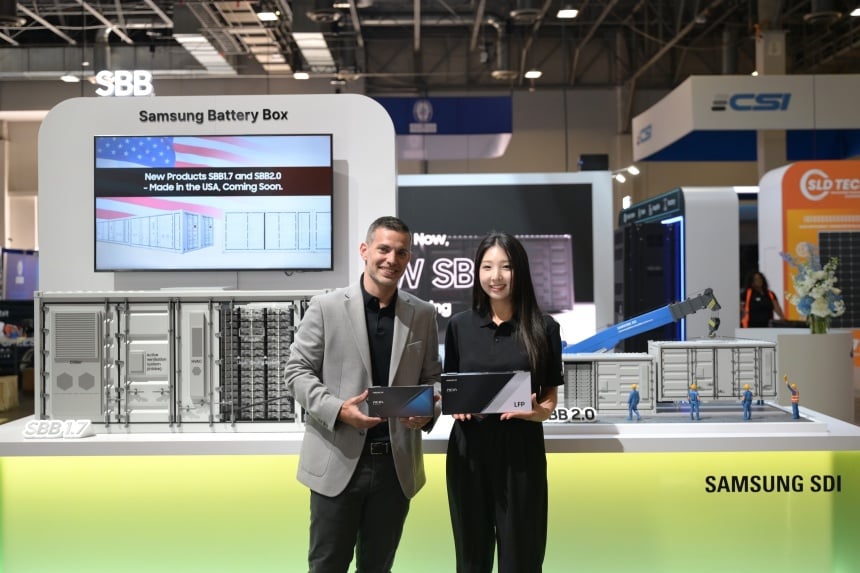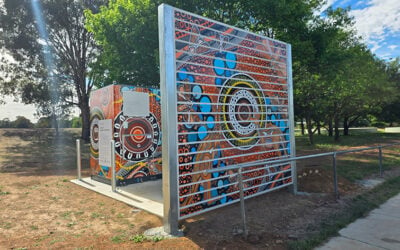
South Korean battery and electronics materials manufacturer Samsung SDI debuted its new battery energy storage system (BESS) products at the RE+ trade show in Las Vegas, US.
Samsung’s Battery Box (SBB) 1.7 and SBB 2.0 are scheduled to begin US-based production next year.
The 6.14MWh SBB 1.7 uses high-nickel nickel cobalt aluminium oxide (NCA) cells, delivering approximately 17% higher energy density than the SBB 1.5.
The SBB 2.0, meanwhile, uses lithium iron phosphate (LFP) cells. Samsung says that for the first time, SBB 2.0 features the company’s “proprietary prismatic form factor and differentiated material, electrode technologies, which help overcome low energy density of LFP cells and maximise advantages such as safety and low price.”
Try Premium for just $1
- Full premium access for the first month at only $1
- Converts to an annual rate after 30 days unless cancelled
- Cancel anytime during the trial period
Premium Benefits
- Expert industry analysis and interviews
- Digital access to PV Tech Power journal
- Exclusive event discounts
Or get the full Premium subscription right away
Or continue reading this article for free
Both models incorporate Enhanced Direct Injection (EDI) technology, providing improved safety and reliability. They are also built with the company’s AI-based predictive maintenance and durability prediction algorithms.
SBB houses battery cells, modules and racks in a 20-foot container, and was awarded a CES Innovation Award earlier this year.
Samsung SDI intends to launch the new SBB products through local production in response to increasing US demand, despite the challenges of local production and growing supply chain risks resulting from US tariff policies.
The company also unveiled its new uniterruptible power supply (UPS) solution U8A1.
According to Samsung, U8A1 boasts a 33% improvement in space efficiency compared to previous models, thanks to its high-power, high-energy density cells. This enables data centre customers to react more quickly to power outages, using fewer cells.
The UPS cells utilise lithium manganese oxide chemistry and have passed the UL9540A US fire safety standard zone.
These batteries feature Samsung’s proprietary “No TP (No Thermal Propagation)” technology, which stops heat from spreading to nearby cells in case of a fire.
That deal, worth KR437 billion (US$301 million), is for supplying ESS equipment to a NextEra Energy BESS project in the US and retrospectively covers 15 April 2024 to 20 November 2025.
Samsung SDI was one of several South Korean companies announcing US domestic BESS at RE+, following the likes of LG Energy Solution and SK On.
Although more affecting Chinese companies, the US’ domestic battery and BESS manufacturing sector looks set to benefit from Foreign Entity Of Concern (FEOC) restrictions on procured technology imposed by the Republicans when seeking clean energy tax credits.





